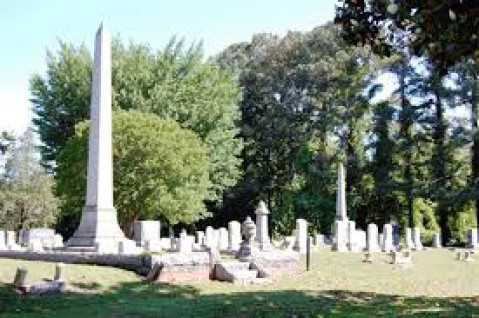Widgetized Section
Go to Admin » Appearance » Widgets » and move Gabfire Widget: Social into that MastheadOverlay zone
Public Service Motivation
The views expressed are those of the author and do not necessarily reflect the views of ASPA as an organization.
By Stephen B. Gordon
November 6, 2015
As many other professors do, I exhort the students in the public administration and public procurement classes I teach to do great things during their careers in public service and leave the world a better place than they found it. I caution them, however, not to expect to be recognized or remembered—at least not for long—for even their greatest contributions. I call their attention to the several massive cemeteries along one of the major arteries not too far from campus and ask them to give me the names of five people buried in those cemeteries who made great contributions to society. I also ask the students to tell me the great contribution or contributions made by each of the individuals they name. In four and a half years, not a single student has provided me the name of a single person, much less named the great contribution or contributions anyone buried in those cemeteries made to society.

Undoubtedly, many people whose remains lie in those graveyards did great things during their lives to make Norfolk, Va., the state, the nation or the world a better place. Why are students unable to answer my two simple questions? Aside from the fact that I gave them no prior instruction to do the necessary research before class, arguably the most plausible explanation is that even the greatest contributions to society, and the names of those who made them, are lost in the passage of time. There is, after all, a lot of fiction written on tombstones, the most applicable one to this discussion being “Gone but not forgotten.”
Having received no answers to the first two questions, I then ask them a third question, which is “Why, if not for recognition, will you as a current or future public administrator seek to do more than what you minimally must do during your career in public service?” After a few good laughs about the big salaries, the huge annual bonuses and the other rewards even the very best public administrators typically do not receive during their careers, the in-class conversations consistently turn to a discussion of public service motivation. What is it? Does it actually exist and, if there is such a thing, from whence cometh it?
Let us begin with attempting to define public service motivation. Just as study hall can be defined as a place where students are brought together in one place to study, public service motivation can be defined as a personal attribute, quality or value that drives individuals who choose a career in government or the nonprofit sector to place a greater emphasis on helping others than on helping themselves. In the company of several highly respected scholars who have studied public service motivation over a relatively long period, I believe most individuals who choose to work for governments or non-governmental organizations are driven to fulfill a calling that transcends self-benefit. Professors, managers, supervisors, colleagues and others can bring latent public service motivation to the surface but they cannot inject this quality or otherwise instill it. They can, however, suppress, degrade or destroy it through cynicism, apathy, ignorance, incompetence and inaction.
 So, what does this have to do with public procurement, the subject on which I have been asked to write my columns in the PA Times?
So, what does this have to do with public procurement, the subject on which I have been asked to write my columns in the PA Times?
In my nearly four decades in the public procurement arena, I have observed and experienced that public servants who work in contracting—who are responsible for spending enormous sums of the public’s money on goods, services and infrastructure that will be used to serve the public—are more likely to be called out for delays and errors than for providing outstanding support for their enterprises’ strategic goals. When they are called out, these officials frequently are scapegoated for others’ errors of commission, omission or blamed for results or non-results over which they had little or no control. To the best or my knowledge, no monument has been erected and no building or facility been named in honor of a public procurement official who went well beyond what was minimally required to serve the public interest.
However, neither I nor any other public procurement professional I know get out of bed every morning hoping this type of personal recognition will come. If we did, we would be undeserving of being called public servants. We would be wrongly motivated.
Author: Stephen B. Gordon, Ph.D., FNIGP, CPPO is the program director of the Graduate Certificate in Public Procurement and Contract Management at Old Dominion University.






Follow Us!